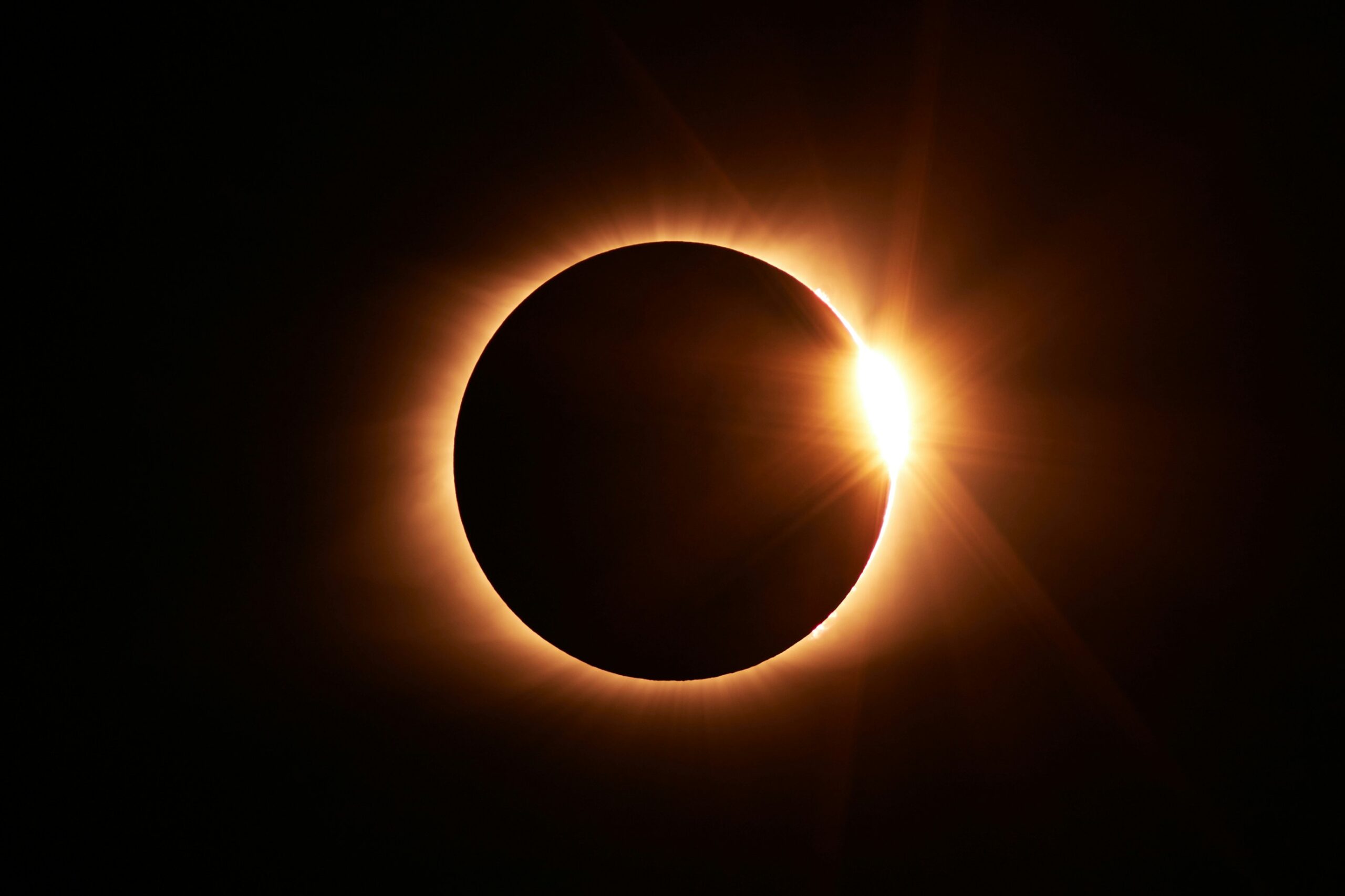What is a Total Solar Eclipse?
A total solar eclipse is a natural phenomenon that occurs when the moon’s apparent size is large enough to completely block out the sun’s light, casting a shadow on Earth and turning daylight into darkness. During the eclipse, the day suddenly turns into night, and the temperature can drop noticeably. It’s a unique experience that many describe as awe-inspiring.
When and Where to Watch
The total solar eclipse on April 8, 2024, will be visible across North America, from Mexico through the United States and into Canada. The path of totality (the area where the total eclipse can be observed) will cross many states in the U.S., including Texas, Oklahoma, Arkansas, Missouri, Illinois, Kentucky, Indiana, Ohio, Pennsylvania, New York, Vermont, New Hampshire, and Maine. Cities within this path will experience darkness in the middle of the day, lasting from a few seconds to over 4 minutes, depending on the location.
How to Safely View the Eclipse
Looking directly at the sun, even during an eclipse, can cause serious eye damage. To safely view the eclipse, you must use special solar viewing glasses or eclipse glasses that meet international safety standards. Regular sunglasses, even dark ones, are not safe for looking at the sun. Alternatively, you can watch the eclipse indirectly through a pinhole projector, which you can easily make at home.
Preparing for the Eclipse
If you’re planning to view the eclipse, here are a few tips to prepare:
- Get Your Eclipse Glasses Early: Demand for solar viewing glasses will increase as the event approaches, so it’s a good idea to purchase them well in advance.
- Choose a Good Viewing Location: Find a spot with a clear view of the sky. Remember, weather can be unpredictable, so be prepared to travel if necessary to find clear skies.
- Arrive Early: If you’re heading to a popular viewing area, get there early to secure a good spot. Expect large crowds, especially in cities and parks within the path of totality.
- Plan for the Weather: Check the weather forecast and dress appropriately. Even if it’s warm, the temperature can drop quickly during totality.
- Be Patient: Remember, this is a rare event that many people will want to experience. Expect traffic and be prepared for a long day, but know that the experience is truly worth it.
The total solar eclipse on April 8, 2024, is an event not to be missed. It’s a chance to witness one of nature’s most incredible spectacles. Whether you’re an avid eclipse chaser or a first-time viewer, this eclipse offers a wonderful opportunity to experience the awe and wonder of our universe.
